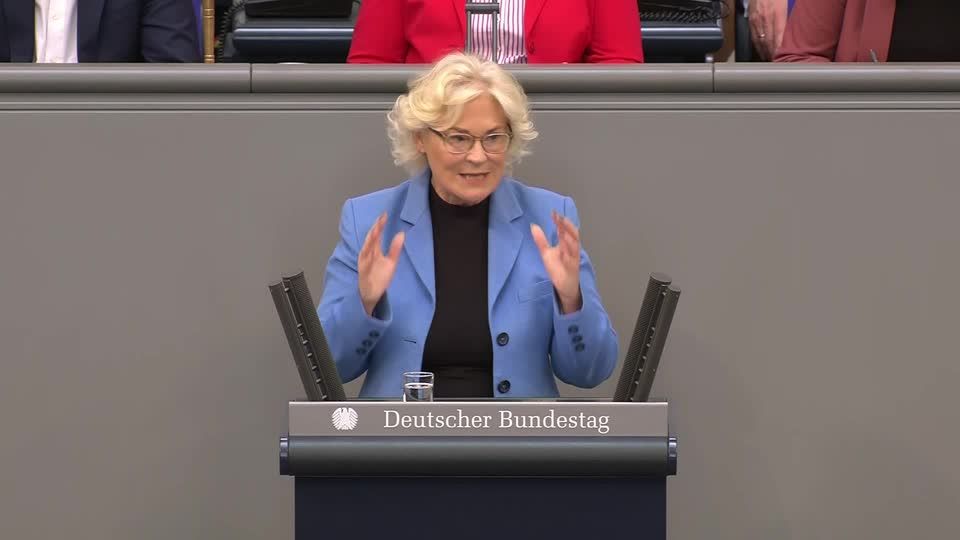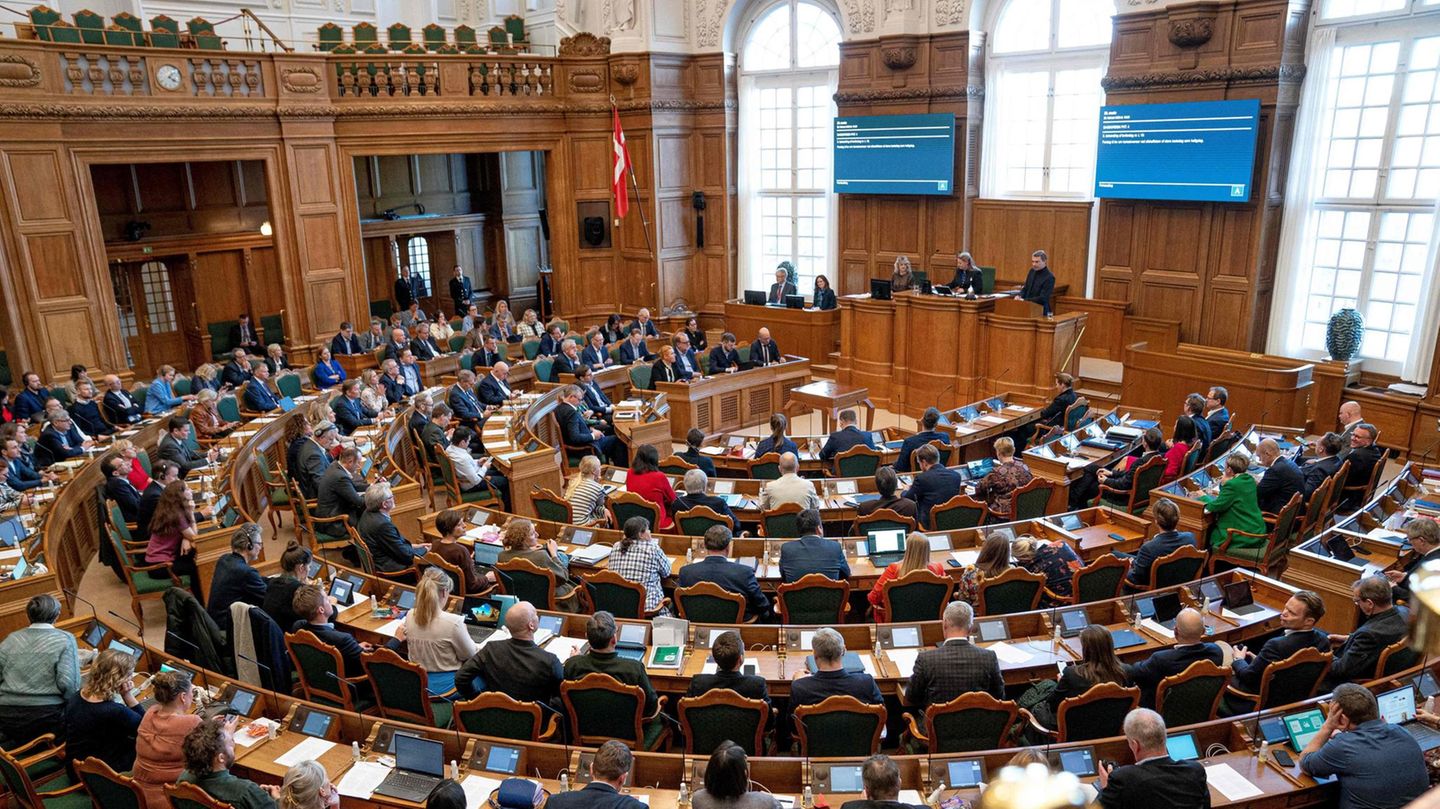Despite massive protests, Denmark is doing away with a public holiday at the instigation of the government. It promises more money for the defense budget. Would that also be an idea for the ailing Bundeswehr?
In the end, the massive protests by trade unions and churches were of no use. The Danish government’s plan to abolish a public holiday was sealed in parliament on Tuesday after a heated debate. The parties in the SVM government – Social Democrats, Venstre and Moderate – voted in favor, as did the opposition Social Liberals.
The SVM government had announced from day one that the “store bededag” should no longer be a public holiday, but a normal working day. “Store bededag”, which means “big day of prayer” in German; it was introduced in Denmark in 1686 with the aim of bringing together several Christian holidays introduced in earlier times of crisis and war. They prayed, fasted and did penance.
But by 2024, that holiday will be history, despite massive union mobilization against the plans. More than 450,000 signatures were collected in Denmark against the abolition of the holiday. In theory, the opposition parties could have asked the Folketing, the Danish parliament, for a referendum on the government proposal – but there weren’t enough mandates for that; the opposition was divided on this point.
Abolish holiday: Danish government hopes for additional revenue
In the SVM coalition agreement, the parties agreed that the military would have to be given more financial support due to the Russian war against Ukraine and the threat that it was drawing closer. The “store bededag” must now give way for this. “The Danes must contribute to our common security,” said a passage in the coalition paper.
In Copenhagen, it is expected that additional income of 4.5 billion crowns (equivalent to more than 640 million euros) will flow into the defense budget. Thus, the increase in defense and security spending to two percent of gross domestic product, which is already planned for 2033, could be brought forward to 2030. The two percent is a goal that NATO is striving for the member countries to ensure common defense capability.
“The Danish military needs a vitamin shot that works. This way we can prepare ourselves for the new geopolitical reality that is emerging around us,” commented Frederiksen’s Foreign Minister Lars Løkke Rasmussen on the financing plans.
Greens and FDP: Use special funds for the first time
After the vote in the Folketing, Prime Minister Mette Frederiksen again stressed that the country’s armed forces needed more money to cope with the geopolitical reality. “We may have to go beyond the two percent.”
The German Bundeswehr is facing a similar problem in this country. Equipment needs to be modernized and weapons delivered to Ukraine need to be reordered. They also want to finally achieve NATO’s two percent target. Defense Minister Boris Pistorius (SPD) is therefore calling for an additional ten billion euros per year for the defense budget in order to achieve all of this.
The example from Denmark may also stimulate the imagination of politicians in this country. But could the cancellation of a public holiday in Germany actually solve the Bundeswehr’s financing problem?
The answer is complicated. On the one hand there is the 100 billion euro special fund, most of which has not yet been attacked. According to the Ministry of Defence, 30 billion euros are already planned for this year. That leaves 70 billion left. Greens and FDP are in favor of taking the money needed from this pot.

Wirtschaftsinstitut considers special funds to be insufficient
However, analysts at the German Economic Institute (IW) predict that the two percent target will not be reached with the 100 billion alone. The rising prices make things even more difficult. “The NATO quota cannot be met with nominally constant budget estimates and a special fund nominally limited to 100 billion euros,” said the IW. Thanks to the special fund, the two percent quota would be reached in 2024 and 2025, “but after that the share in GDP would fall to 1.8 and 1.2 percent”.
The IW proposes a “consolidation of the defense budget” as a remedy. “In order to solve the financing problems, which are directly reflected in an equipment and capability gap, a real stabilization of the defense budget – i.e. a nominal increase of at least five percent per year – before the use of the special fund seems necessary.”
Danish economists doubt benefit of public holiday cancellation
So more money is needed. But can a canceled holiday actually guarantee this? In Denmark there are doubts about the concept. Carl-Johan Dalgaard, one of the country’s most important economists, told the Jyllands-Posten newspaper that eliminating a public holiday could bring in more money in the short term. In the long term, however, the impact on the national budget would be “exactly zero crowns”.
“I have seen no evidence that eliminating a public holiday would lead to a lasting improvement in public finances,” said the professor of economics at the University of Copenhagen. Quite simply because sooner or later working Danes would find other ways to compensate for the abolished public holiday.
Incentives instead of more work
The bourgeois-liberal think tank Cepos from Denmark comes to the same conclusion. “I’m very skeptical about the government’s idea of scrapping the Great Day of Prayer to fund higher defense spending,” said Cepos chief economist Mads Lundby Hansen. “The impact on employment is fragile, and so is the funding element.”
Dalgaard has other ideas on how to get more people to work – and thereby improve GDP: “If you want to do something that has a proven impact, you have to look at incentives. For example, if you lower taxes on work, raise them The incentive to work increases, and that makes people work more,” he told the Politiken newspaper.

Tax increases and a higher retirement age as an alternative?
But that is not the absolute solution. “The funds can also be raised through savings elsewhere or through tax increases.”
Hansen also sees more effects in other measures. “If you want to increase labor supply, I would recommend traditional reforms where the impact is more certain.” He cites low unemployment benefits and a higher retirement age as examples.
Germany has already canceled a public holiday
However, the alternative proposals of the Danish economists for financing the increased military spending would be even more explosive for the traffic light coalition in Germany: Tax increases could not be made with the FDP, the SPD would storm against a cut in citizen income.
Is the cancellation of a public holiday then possibly the lesser evil?
Rather not. Because Germany of all places has already shown that the concept of additional income from a day of extra work does not really work. In 1995 it was decided to cancel the Day of Repentance and Prayer as a public holiday in order to finance long-term care insurance and to compensate for the employer’s contribution. Only Saxony retained in.

Nevertheless, long-term care insurance struggled with deficits in the first few years. In 1999 she slipped into the red. The contributions had to be increased. Nevertheless, it continued to close with deficits, around 2021 with a minus of 1.4 billion euros, according to the figures from the Association of Substitute Funds.
However, the admonishing example from Germany does not help the Danes, who have taken to the streets in recent weeks to protect their “store bededag”. On May 5th they will probably celebrate it for the last time. Then after 337 years he is history.
Sources: , , , , , , , , , , , , , , , , News agencies DPA and AFP
Source: Stern
I have been working in the news industry for over 6 years, first as a reporter and now as an editor. I have covered politics extensively, and my work has appeared in major newspapers and online news outlets around the world. In addition to my writing, I also contribute regularly to 24 Hours World.




